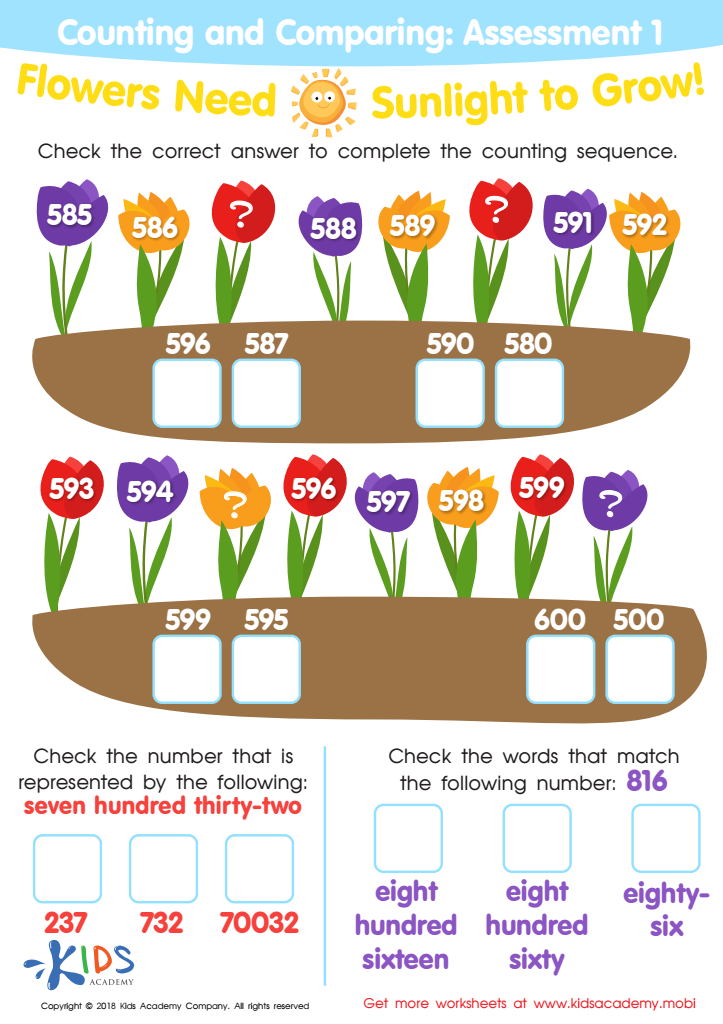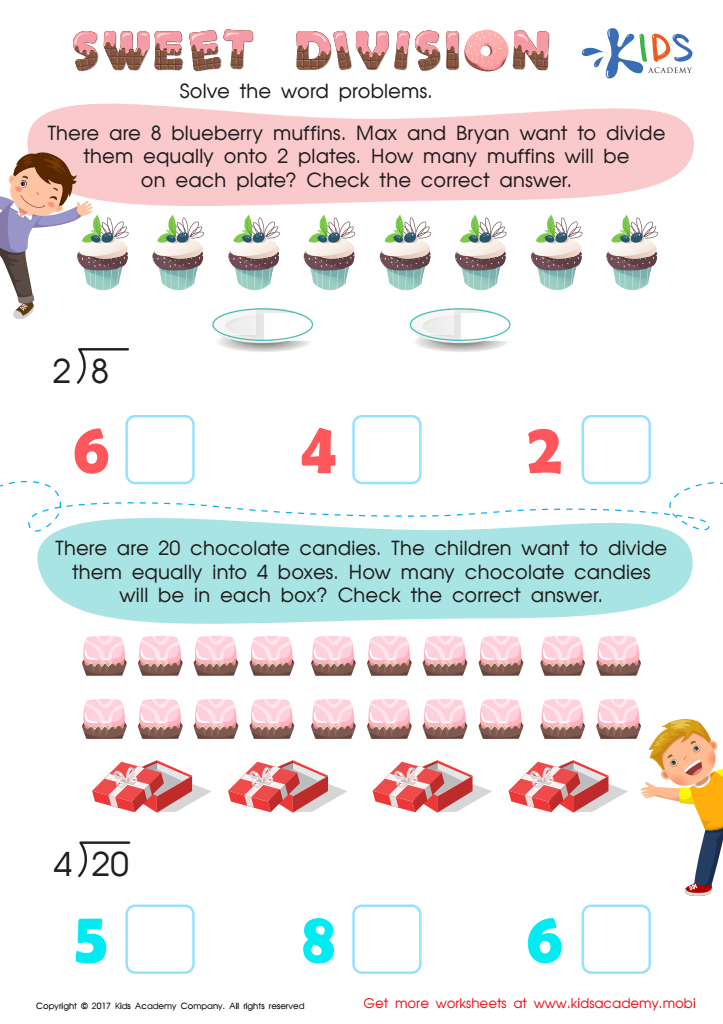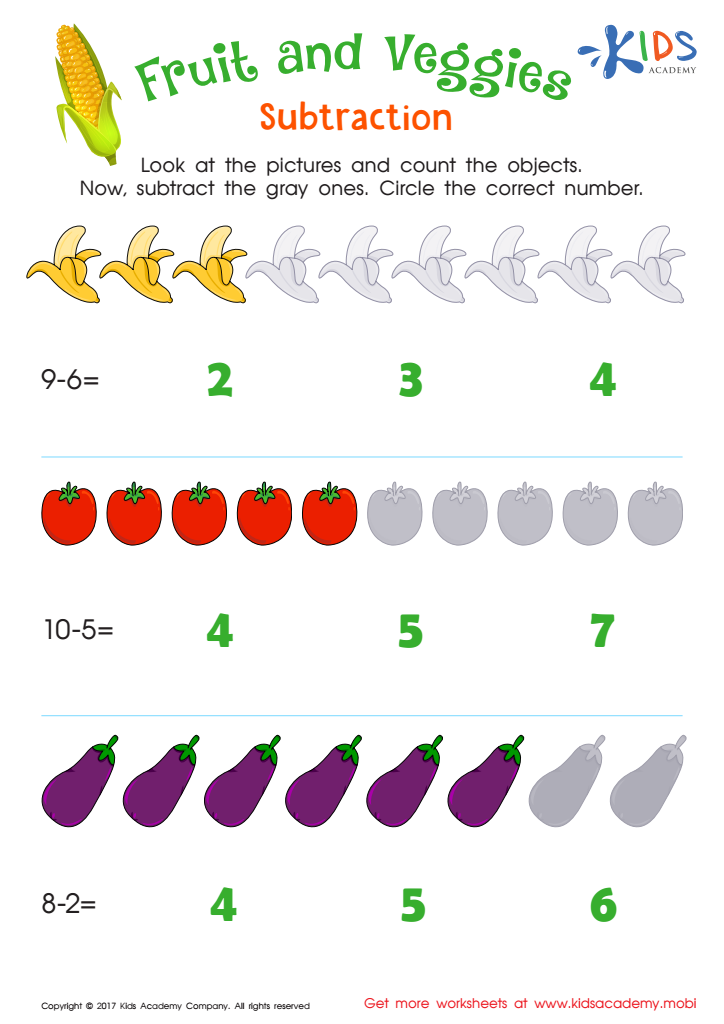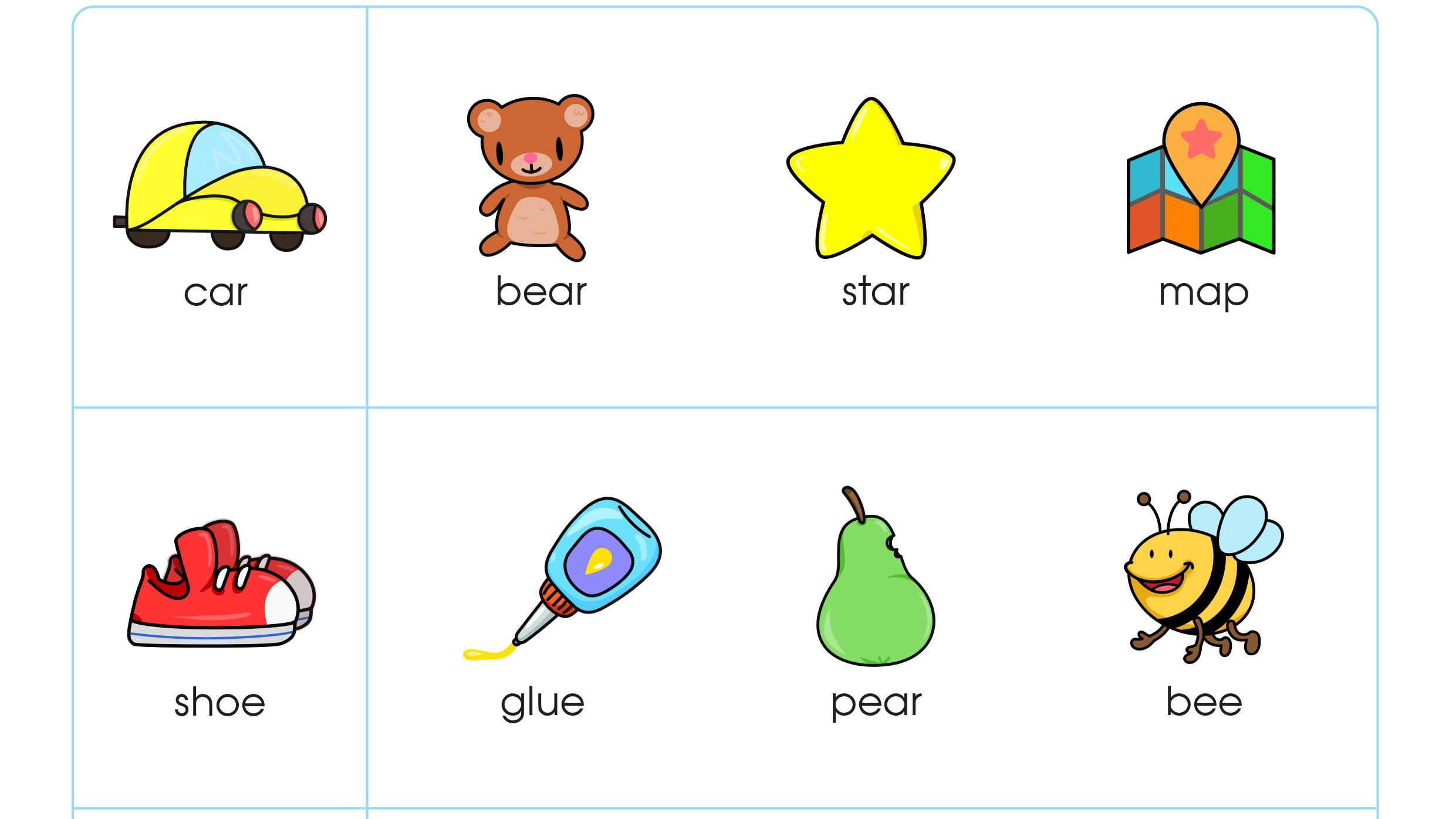Word problem solving Worksheets for Ages 5-8
3 filtered results
-
From - To
Discover our engaging Word Problem Solving Worksheets for ages 5-8, designed to boost your child's critical thinking and math skills! These worksheets provide age-appropriate, fun scenarios that encourage young learners to apply their math knowledge in real-life situations. From simple addition and subtraction to more complex counting challenges, our resources foster a love for learning while enhancing problem-solving abilities. With colorful illustrations and interactive tasks, children will enjoy tackling each unique problem. Perfect for home practice or classroom use, our worksheets support foundational math skills and promote cognitive development in an enjoyable way. Let the problem-solving adventure begin!


Counting and Comparing: Assessment 1 Worksheet


Division Word Problems Worksheet


Fruit and Veggies Subtraction Worksheet
Word problem solving is a critical skill for children aged 5-8, as it bridges the gap between abstract mathematical concepts and real-world applications. For parents and teachers, fostering proficiency in this area is vital for several reasons.
Firstly, word problems help develop critical thinking and reasoning skills. Children learn to analyze information, identify relevant data, and choose appropriate strategies to solve problems. This analytical thinking translates beyond mathematics, aiding children in everyday decision-making and fostering a growth mindset.
Secondly, word problems enhance language skills and comprehension. As children read and interpret problems, they build vocabulary and learn to express their reasoning clearly, improving both their literacy and numeracy simultaneously.
Importantly, word problem solving promotes persistence. Working through challenges teaches children resilience, as they learn that failures can lead to understanding and improvement.
Finally, word problems make math more engaging by grounding it in realistic contexts. This relevance helps cultivate a positive attitude toward math, reducing anxiety and increasing confidence in their abilities.
In summary, by emphasizing word problem solving, parents and teachers equip children with essential life skills, encouraging their holistic development and setting the stage for future academic success and everyday competency.
 Assign to My Students
Assign to My Students
















